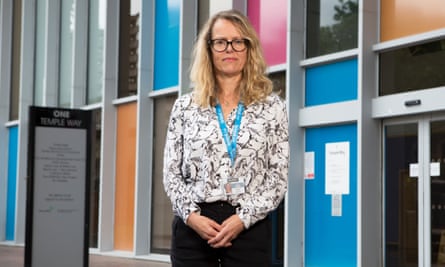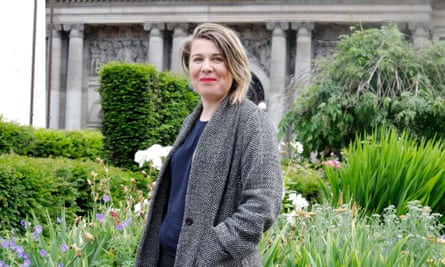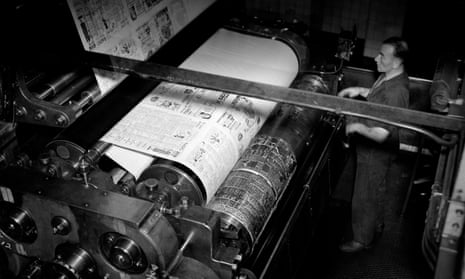One of the sounds fast disappearing from British homes in the past 15 years has been that of a fat local newspaper falling on to a doormat. That daily or weekly alert to the goings-on in the courts and councils and schools and streets a walk or a bus ride from where we live is no longer an anticipated feature of a majority of lives. From 2005 to the end of 2018, there was a net loss of 245 local news titles. An estimated 58% of the country is now served by no regional newspaper. Last week, Mark Thompson, former director general of the BBC and current chief executive of the New York Times, suggested in a keynote lecture that the closures would only increase without a dramatic shift in policy and investment, and that “A society which fails to provide its different communities and groups with the means to listen and come to understand each other’s pasts and presents shouldn’t be surprised if mutual incomprehension and division are the consequence. If you doubt that any of this connects to real-world politics and national wellbeing, you need to pay more attention.”
On a national level the relative decline in print journalism has been partly compensated by the shift online and a blizzard of information from other media; locally, that is not the case. Many of us are increasingly likely to hear more news of the Twitter-trending lives of Piers Morgan or Kim Kardashian than the people with whom we share our own town. The effect of that shift is arguably every bit as damaging to community as the decline in footfall on the high street. A local newspaper, at its best, reflects the place in which you live in all its minute complexity – its celebrations and its commiserations and its incarcerations; it not only holds powerful local figures to account, it shapes shared feelings of hope and of anger and helps to piece together the serial story of where you are.
The editor of the long-defunct Barrow Herald, in Cumbria, expressed that relationship in these terms: “Nothing interests a man more than the news of his own neighbourhood. We continue our endeavours to cram our sheet full of facts – facts possessing as much local interest as possible. Our chief object is to make this paper a faithful record of everything of public importance that may transpire in Barrow.” What happens when that object and faith is lost?
A 2016 study by King’s College London, found UK towns whose local newspapers had suffered closure showed a “democracy deficit” that resulted in measurably reduced community engagement by local people and a heightened distrust of public institutions. “We can all have our own social media account, but when local papers are depleted or in some cases simply don’t exist, people lose a communal voice. They feel angry, not listened to and more likely to believe malicious rumour,” Dr Martin Moore, the author of the study, observed. The absence was felt in the national conversation too. Good stories have usually filtered up the news chain from reporters on the ground. The King’s study found that the third of parliamentary constituencies that were no longer covered by a dedicated daily local newspaper at the time of the 2015 general election received scant mention during it.
The Cairncross Review into the crisis was published earlier this year. It drew a familiar portrait of the reasons for this decline. The business model of local news (and by extension local democracy) was entirely dependent on classified advertising. When estate agents, car dealers and other local retailers moved their investment in “eyeballs” on to search engines, money drained away. The collapse in finance led to cutbacks in newsrooms and papers became thinner and more distant from their audience, further reducing their appeal. In particular, Dame Frances Cairncross concluded, despite many honourable and heroic exceptions, that those elements that gave local news its storytelling bite and purpose became largely unaffordable: “The cost of investigative journalism is great and rarely seems to pay for itself…”
Her recommendations to the government argued for a system of direct funding of public-interest news outlets and charitable status for some publishers. The review also recommended urgent investigation by the competition regulator into the dominance of the advertising market by Facebook and Google.
Some small-scale efforts to fix local news have already been made along the lines that Cairncross suggested. The BBC – whose website is part of the competitive problem for commercial local news – created the Local Democracy Reporting Service to fund 150 journalists to cover council meetings and local public services, and to share stories both with local news organisations and the corporation.
Most of the other investment in news-resuscitation is promised, ironically, by Facebook and Google, who have each launched ambitious $100m-a-year schemes (covering Britain and the US) to find ways to rebuild the local news economies that between them they have effectively destroyed. Cynics might believe these schemes to be a pre-emptive strike against regulators compromising elements of their profit engines. Google funded the Bureau Local, a branch of the Bureau of Investigative Journalism, last year with a £500,000 grant, with the aim of supporting public-interest journalism in the UK by publishing free data online. Last week it announced a multimillion dollar investment in Archant, “the News Corp of East Anglia”, which owns a range of successful local titles from the Hackney Gazette to the New European. The money was to be devoted to testing models of local online news in three “news deserts” that have lost coverage.
While such experiments take place – and there is cause for optimism, too, in smaller co-operative and community models of news gathering – the critical business of investigating local stories for local people persists in many areas and thrives in a few. The best journalism always has a sense of vocation. We feature insights from some of those outstanding professionals who, despite everything, continue to operate in that spirit, who understand the importance of getting the story straight for the people it affects most directly.
Amanda Cameron, Bristol Post

Late-career news journalist who exposed a mock slave auction in a local school
Originally from New Zealand, former medical writer Amanda Cameron retrained as a journalist in her late 30s. Now 53, she is a local news democracy reporter for the Bristol Post, following a stint at the Bath Chronicle.
Cameron’s 2018 scoop about a mock slave auction at a Bath comprehensive went national: seven white pupils had tied a black pupil to a lamppost in the playground and whipped him. The headteacher tried to expel the pupils, but governors overruled him. “There was so much secrecy from the school when I was trying to find out what happened,” Cameron says. “It felt very adversarial, and the community was very divided around what I was trying to do. Some people attacked me [verbally] for reporting it, wanting me to leave the school alone.” But she couldn’t let it go. “This was something that had to be challenged. I felt vindicated when the story came out.”
Cameron’s early days in news journalism included a year at a New Zealand tabloid. “That was a real baptism of fire. There was so much competition to get headlines.” Working at the Bath Chronicle in the UK was very different, she says. “You instantly got out into the community, and started to meet its people, and understand its issues fully.” She reported a successful four-year fight by the residents of a local estate, Foxhill, to save their homes from demolition – which would have resulted in the loss of more than 200 social homes for rent – and she is passionate about local journalism’s importance in the wider media landscape. “Locally, you can follow up the impact of a story in a way that nationals haven’t always got the time to commit to. Seeing what happens next is so important.”
Last October, Cameron started working as a local democracy reporter for the news publisher Reach from the offices of the Bristol Post. The local democracy initiative was launched by the BBC in 2017 and allocated 144 new reporters to news organisations across England, Scotland and Wales, to boost coverage of local authorities and other public sector meetings. It’s been a breath of air, she says, to go into that detail; her recent stories include objections to the building of three new tower blocks on the site of a former fire station, and the accusation by a former GP that the local NHS is breaking national rules to deny people hip operations. “The reporting of the story is now the most important thing with my job, rather than finding an audience. There’s still a pressure to feed the beast in local journalism, to think of the insatiable appetite of your audience above everything.”
She’s also fired up by how vital her work feels in 2019: she’s sitting before the seats of power at a regional level every day, finding out about decisions that will have considerable impact on local communities. “My priority is holding power to account locally, and it’s such an important time to be doing this. People have got so inured to austerity in many ways. It’s not a headline any more. It should be.” Interview by Jude Rogers
Jennifer Williams, Manchester Evening News

Twice Orwell prize-nominated investigative reporter whose series on Manchester’s hidden homelessness caused a political storm
“I keep being asked when I’m moving to London as my work’s getting known ‘nationally’,” Jennifer Williams says, a note of weariness in her voice. “I’d rather ask a different question: why aren’t there more reporters like me all over the country? Why are places outside London not properly represented?”
One of the UK’s most respected investigative journalists, Williams has undertaken some impressively dogged and far-reaching reporting. Take last year’s series Hidden Homeless. She’d had “an inkling”, she says, “that single men were being placed in derelict houses a few years ago. So I started to talk to people, and the story kept growing.” She discovered that councils were placing placing families in flea-ridden, drug-infested guest houses, and went to see the mice, mould and rotting cupboards for herself. She found that people not in “priority need” were being directed to unlivable dwellings by homeless associations and local housing providers, with their landlords collecting more than £3,000 a month in housing benefit regardless. She also revealed how the deaths of homeless people were not being properly recorded, focusing on heartbreaking stories like that of Stefan Tomkins, who was crushed to death in the bin where he was sleeping.
Williams’s reporting had a significant impact: Manchester town hall announced an emergency review, mayor Andy Burnham promised to buy up slum properties, and the Office of National Statistics started recording the deaths of the homeless. It wasn’t the first time her work had led to policy changes. In 2017, her investigation into the use of the drug Spice by care-leavers, prisoners and the homeless led to agencies recording incidents involving the drug for the first time, and won her specialist writer of the year at the Regional Press awards. Both investigations led to nominations for the Orwell prize.
Was she proud when the authorities paid attention? “Yes. That’s why I do what I do. I want my work to change things.”
Born in Ruthin, north Wales, Williams was fascinated by politics from a young age. She remembers hearing Geoffrey Howe’s incendiary cabinet resignation speech in parliament in the car with her dad in 1990 (“he always had news on the radio”) and the sleaze scandals of the John Major years. “I found them so interesting and intriguing. I got so precocious about it, I was reading Private Eye when I was 12.”
Becoming a music fan in her teens, she changed tack, wanting to be a music journalist, but after an English degree at Manchester University, returned to her earlier interests. She did an NCTJ qualification by distance learning “because I couldn’t afford to go anywhere, and couldn’t drive”. She learned a lot – “particularly that you shouldn’t learn about journalism at a distance. It’s really important when you’re a local journalist to be around people.”
That is more necessary than ever in the age of the internet, she says. When she started at the Stockport Express in 2007, their newsroom had one person to put articles online. “It was a crazy time to start out, because it was clear that everything was undergoing this massive revolution, and happening very quickly, and no one really knew what to do.” Nevertheless, she believes that journalism’s role in society hasn’t fundamentally changed. “It doesn’t matter whether someone reads a story through Facebook or in print. The most important question is the same to me: are you still serving the readers properly in your work? If you are, then they’ll read it.
Williams’s job involves plenty of pedestrian tasks too, such as reporting “on things that happen there and then”,going to council and combined authority meetings, and keeping on top of Freedom of Information Act requests and long-term projects. Recent work includes reports on regional inequality in the UK and the troubling inefficiencies of the police’s new computer system.
She sees the future of local journalism as bright. “Holding power to account and keeping on top of that for your readers is so important – and there’s an appetite to hear more than that now.” JR
Tom Bristow, Archant press, Norwich

Norwich-based investigations editor for regional Archant titles including Eastern Daily Press. Shortlisted for an Amnesty media award in 2011 and highly commended at last year’s British journalism awards
In July 2017, the Norwich-based newspaper Eastern Daily Press published a short news piece about an investigation at the heart of the local constabulary. One year earlier, a Norfolk police doctor had been convicted after admitting to 13 indecent assaults against female officers. Questions were raised about an initial cover-up – the assaults dated as far back as 1993 – but, according to a Norfolk police statement, an investigation by Essex police had concluded with no charges or calls for further action.
“After we published,” says Tom Bristow, 32, “victims of the doctor got in touch, very annoyed, saying: ‘Hang on a sec, this isn’t what happened.’” They said the paper needed to find the full Essex investigation report if they wanted tell the whole story. “And that,” he says, “is where we came in.”
In 2016, Bristow, originally from London, was appointed to a newly formed investigations unit at Archant, which owns Eastern Daily Press and more than 50 other local newspapers around the country. “We were getting all these tips that we weren’t pursuing because we were so focused on the day-to-day,” he says. The idea was that, as editor of the three-person unit, serving local papers in Suffolk and London as well as Norfolk, Bristow would be able to step back and focus on knottier stories that required time and resources to unpick.
Bristow had form in this area. On his first reporting job with the Southport Visiter, soon after graduating from Edinburgh university, he carried out an investigation into Lancashire gang masters, which got him shortlisted for the Amnesty media awards in 2011. “That really gave me confidence,” he said. “It was my first job, on a tiny weekly paper, and I was being listed alongside the BBC. I thought, wow, this is worth doing.”eading up the investigations unit at Archant feels like “a very unusual and luxury position”, says Bristow. He has, for example, pursued tip-offs about rogue landlords around Norfolk, leading to several hard-hitting pieces about people in desperate rental situations; he also edited a Paul Foot award-winning series, written by Emma Youle for the Hackney Gazette, about homelessness in London.
For the Norfolk police story, Bristow and his reporter Dominic Gilbert spent weeks trying to get hold of the investigation report, while Gilbert went out and spoke to the victims. “It turns out Essex police did a really thorough job, reporting all kinds of failings, and none of that was mentioned in the Norfolk press release.”
Their efforts didn’t go unrecognised: the resulting stories, published by the Eastern Daily Press in November and December 2017, were highly commended at last year’s British journalism awards.
Without well-resourced, regional journalism such as this, Bristow believes, “local power would not be held to account across the country. Because of the traditional strength of the local press in Britain no other institutions have developed to do this. There’s got to be something there to let people know what the council and the police are up to, and to name and shame criminals as they go through the courts.” The alternative, according to Bristow, is bleak. “Local democracy simply doesn’t work if people aren’t kept informed.” Interview by Killian Fox
Aamir Mohammed, Wales Online

Named young journalist of the year for hard-hitting multimedia stories about family abduction and online suicide
The 2019 Society of Editors’ young journalist of the year was only nine months into his job at Wales Online (the online home of Welsh daily the Western Mail and its sister title, Wales on Sunday) when he won the award – and he still hadn’t finished his postponed M.A. dissertation. ““It’s probably not the right way round to do it,” Aamir Mohammed says.
One of the stories that most impressed the judges was Mohammed’s 2018 long-form feature about a Cardiff-born woman, Safia Saleh, who was abducted from the city in 1986 as a toddler by her father, who took her to his home country, Yemen. Now, with Yemen in the grip of civil war – and the UK government having no evacuation procedures for British citizens - a councillor tipped off Mohammed that Saleh’s mother’s was trying to get visas and emergency passports to help Safia and her young family come back.
“I knew for [the story] really to have an impact, I needed to get a real sense of what Safia’s life was like,” Mohammed says. “I needed as much detail as possible about how she was surviving her situation, including getting video and pictures.” He spent time with her family in Cardiff and interviewed Safia in Yemen over Whatsapp with a translator, and obtained photographs and videos from Safia. Published in late November 2018, the piece had an immediate effect: Safia got her documents, and was reunited with her mother in January. “That was a brilliant feeling,” he says, “to have made such a difference.”
Mohammed didn’t think about becoming a journalist until he was 15, when a careers adviser pointed out his good grades in English. Mohammed’s father ran a clothes shop, and read the South Wales Echo every day, so his son knew local journalism; on his English and media degree he became “really obsessed” with news blogging. Becoming one of only 20 students on Cardiff University’s news journalism MA (700 applied in his year), Mohammed became known as “the patch king” for getting lots of stories from his allocated area of Rhymney – a fact he reveals with a shy pride. “Getting people to trust you and know you care about them is what makes a difference,” he says.
Online community groups are a huge help to his work, he says. A post he spotted in his first term of university about a spate of youth crime was his first experience of making local contacts – he messaged the woman who posted it, then met her in person. “It’s essential to build that one-to-one contact,” he says. “Once people saw my stories go live, and trusted me, I was inundated.”
Another story commended by the Society of Editors was a feature about the drug Spice in Butetown in Cardiff for which he interviewed users and spent time at the medical centres giving out methadone. And another (written after a local man broadcast his suicide on the internet) was a harrowing piece about online “suicide rooms”, for which Mohammed joined one such chatroom on the dark web. “Those are important stories to be told, so you’ve got to keep telling yourself: don’t get caught up. Keep a clear mind. It’s your job.”
The job is not a glamorous one, neither are the hours particularly healthy, he says. “It’s every evening, every weekend, if I’m honest. You’re never really off as a local journalist.” He spends a lot of time drinking coffee at community groups, catching up with people he knows, but says he enjoys going to work every single day. “I really like representing underrepresented communities. Even though the pressure to get big stories is tough, that’s what really drives me.” JR
Karin Goodwin, The Ferret, Glasgow

Glasgow-based freelance journalist who writes for investigative platform the Ferret
“More than ever, the public desperately needs good journalism that holds people to account and covers stories important to local communities,” says Karin Goodwin, who has lived in Glasgow for nearly 20 years and now writes about social affairs. “A lot of the old news models have failed the public, and we need new and better ones to take their place.”
Goodwin, who grew up in Ayrshire, became a journalist in her mid-20s. She trained with the Big Issue and worked for the Sunday Herald and the Sunday Times before going freelance. In April, for her reporting on homelessness and drug addiction in Scotland, Goodwin won the prestigious Nicola Barry award at the Scottish press awards.
Two years ago, Goodwin joined Scotland-based investigative platform the Ferret, which was set up by a group of journalists in 2015. “They were frustrated with the current news model that doesn’t invest in in-depth reporting or investigations,” she says, “so they set up a co-op which is owned by its members, who are paying subscribers. We also have a couple of funders” – including Luminate and the Seedbed Trust – “but it’s really our members that are at the heart of the Ferret.” Though not exclusively local in its reporting, the platform covers regional public-interest stories at a level of detail few local newspapers can match.
Periodically, the platform polls its members on subjects they would like to read more about and then covers them in detail over an extended period. One area that Goodwin has been covering is homelessness. Late last year, in partnership with the Bureau of Investigative Journalism, she contributed to a series on homeless deaths around the UK, revealing that at least 94 men and women in Scotland had died while homeless over the previous 12 months.
Goodwin’s in-depth knowledge of Glasgow added an extra dimension to her reporting. “A man died in the local night shelter here, and just weeks before, I had interviewed him for a separate piece about homelessness,” she said, “so I was able to go back and listen to that recording, which was quite harrowing, knowing what happened to him subsequently.”
As well as appearing on the Ferret, Goodwin’s articles ran on the BIJ’s Bureau Local website, alongside related stories from across the country. “Then Channel 4 News covered it and were able to show that [homeless people dying in high numbers] was a UK-wide issue. That’s the strength of organisations like the Bureau,” she adds. “It’s able to reach out and tap into the resources of journalists right across the country.”
For Goodwin, maintaining a close, two-way relationship with readers is crucial. “At the Ferret we try to make sure we’re very much engaged with our members and we report the things that are important to them, as well as things we think are in the public interest,” she says. “Maybe that’s a way of getting back to building communities around the work that we do.” KF
Annette Belcher, Birmingham Live

Birmingham-based content editor at the Local Democracy Reporting Service
Belcher, 35, was born in the Black Country and studied journalism in Wolverhampton before getting her first job with the Trinity Mirror group (now known as Reach). Her career has involved several transitions. “I started as a reporter on our weekly title and progressed on to a daily, the Birmingham Mail. Then it was the transition from print to online, becoming a multimedia journalist on [the Mail’s sister website] Birmingham Live.”
In her 12 years as a reporter based in Birmingham, she is most proud of the #BrumFeeds campaign for the Trussell Trust, which operates food banks across Birmingham. “We’d been writing a lot in Birmingham Live about how people are becoming more and more reliant on food banks, but we felt that there was more we could do. So our aim when we launched in April 2018 was to collect 100 tonnes of food [from readers and the general public], equivalent to 100,000 meals, but we managed to blitz that figure and more than double it by December,” says Belcher. “We did two massive events in the city centre: one was the launch and the second one was called the Big Drop, where we managed to collect a tonne of food in one day.”
Now her role has changed again: in April, Belcher joined the Local Democracy Reporting Service, launched by the BBC in 2017 as a counterbalance to clickbait, funding regional journalists to report on council meetings, crime stories and other areas that might not otherwise be covered in depth by local newspapers in the digital era. Though Belcher works out of the Birmingham Live offices, her role as content editor involves liaising with news desks across the country to promote LDRS material and tailor it for individual news websites.
“Local journalism is a changing landscape, and very different from the days of print,” says Belcher. “But with online platforms we’re able to get even more information out there, cover stories in greater depth and better serve our communities, which is what local journalism is all about.”
Thanks to campaigns such as #Brumfeeds, combined with an intimate understanding of local readerships, the appetite for local journalism remains strong, Belcher believes. “People really feel that they have a voice,” she says. “When national titles have come and gone, we’ll still have that place within local communities. We have longevity because we’ve built up loyalty with them.”










Comments (…)
Sign in or create your Guardian account to join the discussion